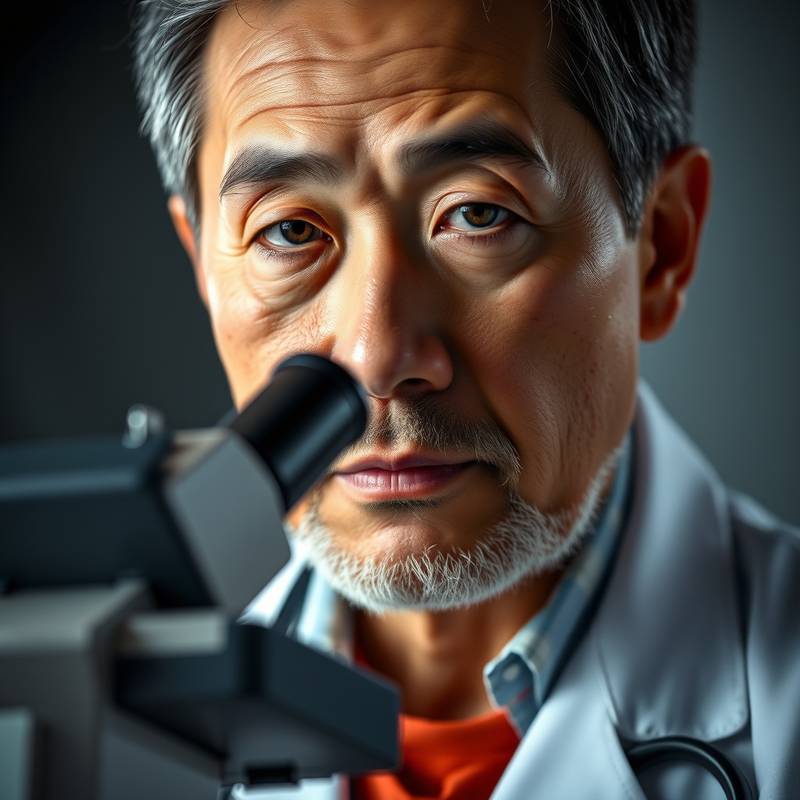David Lee: Advancing Healthcare Through Biotechnology
An in-depth conversation with a pioneer in gene editing and personalized medicine.
Visionary Insights sits down with Dr. David Lee, a renowned biotech researcher, to discuss the groundbreaking advancements in healthcare driven by biotechnology. From gene editing to personalized medicine, Dr. Lee shares his insights on the ethical considerations, potential benefits, and the future of healthcare innovation.
Interview: Dr. David Lee on the Future of Biotechnology

The Promise and Peril of Gene Editing
Visionary Insights: Dr. Lee, thank you for joining us today. Gene editing technology, particularly CRISPR, has revolutionized the field of biotechnology. Can you explain its potential impact on healthcare?
Dr. David Lee: It's a pleasure to be here. CRISPR technology has opened up unprecedented possibilities for treating and potentially curing genetic diseases. We're talking about conditions like cystic fibrosis, sickle cell anemia, and Huntington's disease, which were once considered untreatable. CRISPR allows us to precisely target and modify specific genes, correcting mutations that cause these diseases.
Visionary Insights: That sounds incredibly promising. However, there are also concerns about the ethical implications of gene editing, particularly when it comes to germline editing, which would alter the genes of future generations.
Dr. David Lee: That's a valid concern. Germline editing raises complex ethical questions that society needs to address. We need to have a thorough discussion about the potential risks and benefits before we consider using it for anything beyond treating severe genetic diseases. The long-term consequences are still unknown, and we need to proceed with caution.
Personalized Medicine: Tailoring Treatments to the Individual
Visionary Insights: Personalized medicine is another area where biotechnology is making significant strides. Can you elaborate on how genetic information is being used to tailor treatments to individual patients?
Dr. David Lee: Personalized medicine, also known as precision medicine, involves using an individual's genetic information to guide their medical care. This includes identifying genetic variations that may affect their response to certain drugs or increase their risk of developing certain diseases. For example, in cancer treatment, genetic testing can help us identify specific mutations that are driving the tumor's growth. This allows us to select the most effective targeted therapies, minimizing side effects and improving outcomes.
Visionary Insights: What are the biggest challenges in implementing personalized medicine on a wider scale?
Dr. David Lee: One of the biggest challenges is the cost of genetic testing. While the cost has come down significantly in recent years, it's still not accessible to everyone. We need to find ways to make genetic testing more affordable and accessible so that everyone can benefit from personalized medicine. Another challenge is data privacy and security. We need to ensure that individuals' genetic information is protected from unauthorized access and misuse.
Disease Prevention: A Proactive Approach
Visionary Insights: Beyond treating existing diseases, biotechnology is also playing a role in disease prevention. Can you give us some examples?
Dr. David Lee: Absolutely. Biotechnology is enabling us to develop more effective vaccines and diagnostic tools. For example, we're seeing the development of mRNA vaccines, which can be rapidly developed and deployed in response to emerging infectious diseases. We're also seeing the development of more sensitive and specific diagnostic tests that can detect diseases at an early stage, when they are more treatable. Gene therapy is also being explored as a way to prevent certain diseases, such as inherited forms of blindness.
Visionary Insights: Looking ahead, what are the most exciting developments in biotechnology that you anticipate seeing in the next decade?
Dr. David Lee: I believe we'll see continued advancements in gene editing, leading to new therapies for genetic diseases. We'll also see further integration of artificial intelligence and machine learning in drug discovery and development. This will accelerate the process of identifying new drug targets and developing more effective treatments. And, as mentioned earlier, the widespread adoption of personalized medicine will transform healthcare, allowing us to deliver more precise and effective treatments to individual patients. I also hope we will see significantly improved access to healthcare resources globally, leveraging biotechnology advancements to address critical public health challenges in underserved communities.
About Dr. David Lee
Dr. David Lee is a leading biotech researcher and a pioneer in the fields of gene editing and personalized medicine. He holds a Ph.D. in Molecular Biology from Stanford University and has published extensively in top scientific journals. Dr. Lee is currently the Director of Research at Genetech Solutions, where he leads a team of scientists focused on developing innovative therapies for genetic diseases. His work has been recognized with numerous awards and honors, including the National Medal of Science. Dr. Lee is also a passionate advocate for science education and outreach, regularly giving talks to students and the public about the importance of biotechnology.